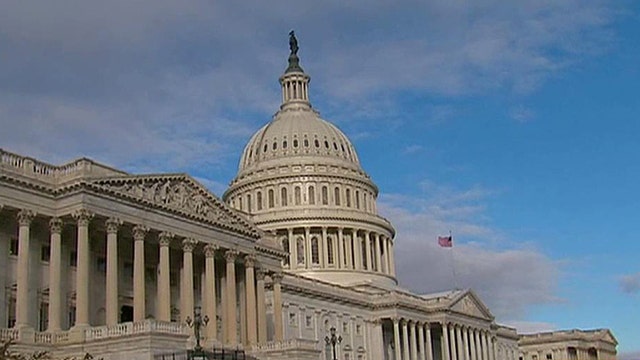Almost every president of the last 40 years has called for shrinking or streamlining the federal bureaucracy. Think of President Reagan saying at his first inauguration, "Government is not the solution, government is the problem," or President Clinton vowing in 1996, "The era of big government is over."
Even more recently, President Obama said in January 2012, "I'm calling on Congress to streamline and reform the executive branch."
Many have tried. None has succeeded.
"The government is far larger than it ever has been. The debt is growing at record rates," Thomas Schatz, president of Citizens Against Government Waste, said.
Adjusted for inflation, federal spending has gone up from an average of $882 billion every year in the 1980s to $1.48 trillion a year in the '90s to $2.44 trillion a year in the first decade of the 21st century. It's estimated that the government will have spent as much in the first four years of the new decade as it did in all of the 1990s.
Two crises -- the terrorist attacks of Sept. 11, 2001, and the so-called "great recession" -- further propelled the growth of government in certain areas but without the commensurate cuts in other areas that earlier generations imposed in times of crisis.
"In the past when there were various crisis like World War II or the Korean War, non-defense spending was dramatically cut by 20 to 30 percent," Schatz said. "That didn't happen after 9/11, and it certainly didn't happen after the financial crisis."
Nothing typifies the expansion of government like the growing wealth of the Washington, D.C., area. The region has few natural resources and little manufacturing base to produce wealth, yet seven of the nation's 10 richest counties surround Washington. The average government worker's compensation now stands at over $126,000 a year. And the fact that Washington's traffic congestion now ranks as the nation's worst stands as more evidence of the region's growth.
As the rest of the country suffered through the recession with layoffs and foreclosures, Washington's work force and its home prices remained mostly stable.
"The congressional system is to spend money and not save money. The incentive for many members of Congress to solve a problem is to create a program," Schatz said.
And with the creation of almost any government program comes a food chain of contractors, lobbyists, lawyers and special interests -- all feeding from a government trough that Congress seldom lets run dry.
"You have to balance the family budget, you have to make sure the business is solvent. Government doesn't really look at it that way," said Evan Bayh, a former Democratic senator from Indiana.
So even expenditures that some call grossly wasteful -- say, $385,000 for a Yale University study on the plasticity of duck penises during mating, or $60,000 for a "Star Trek" spoof for a 2010 IRS training session -- may not raise red flags until after the money is spent.
"They don't want to know where the waste is, because if they actually know where the waste is they're going have to do something about it," Sen. Tom Coburn, R-Okla., said.





